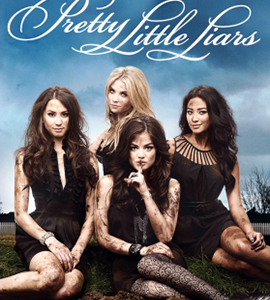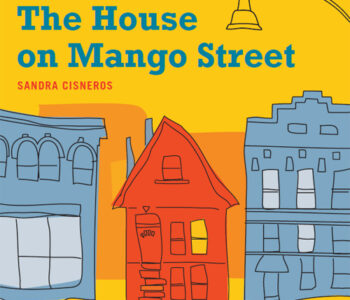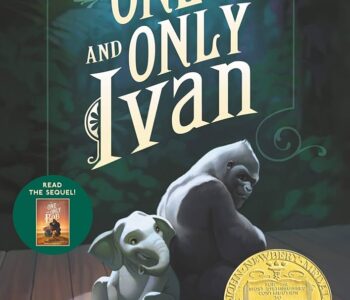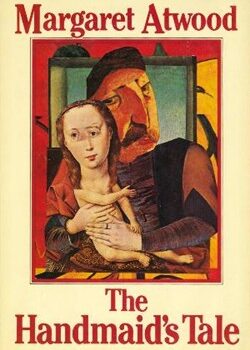 Books
Books
What Genre is the Handmaid’s Tale
The Handmaid’s Tale is a dystopian fiction novel in the science fiction genre. The Handmaid’s Tale by Margaret Atwood is a dystopian fiction novel, set in a totalitarian society called Gilead, where women are subjugated and reduced to their reproductive functions.
The story follows the life of Offred, a Handmaid who is assigned to bear children for wealthy couples. This novel explores themes of power, control, gender oppression, and the survival of the human spirit. With its thought-provoking narrative and vivid world-building, The Handmaid’s Tale has become a classic in the science fiction genre.
It engages readers in a chilling reflection on the consequences of patriarchal society and the importance of individual agency. We will delve deeper into the genre and themes of The Handmaid’s Tale, showcasing why it remains an enduring and relevant masterpiece of dystopian literature.
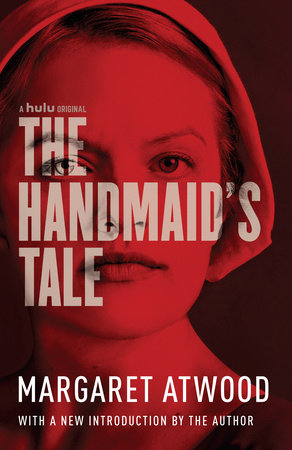
Credit: www.penguinrandomhouse.com
Literary Analysis Of The Handmaid’s Tale
The Handmaid’s Tale falls under the genre of dystopian fiction and science fiction. Dystopian fiction refers to a genre of literature where the story is set in an oppressive society, often in the future, where individual freedoms and rights are severely restricted. It serves as a criticism or warning about the potential dangers of such a society.
Science fiction, on the other hand, incorporates elements of scientific and technological advancements in its narrative. In the case of The Handmaid’s Tale, science fiction is evident in its portrayal of a near-future society that is governed by a strict theocratic regime, where technology and surveillance play a significant role.
The fusion of dystopian fiction and science fiction in The Handmaid’s Tale enables the author to explore complex societal issues, gender roles, reproductive rights, and political power dynamics. By depicting a world that is both terrifying and plausible, the novel serves as a thought-provoking critique of the potential consequences of extremist ideologies and the importance of preserving individual freedoms.
Key Themes In The Handmaid’s Tale
The Handmaid’s Tale is a dystopian novel by Margaret Atwood that explores several key themes. One of the prominent themes is oppression and power, which is depicted through the totalitarian government of Gilead. Women are subjugated and forced into roles as handmaids, stripped of their personal identities and rights. This oppressive regime exercises control over every aspect of their lives, enforcing strict rules and punishing any form of dissent. The novel also delves into the themes of gender and identity, illustrating the consequences of a society that strictly defines and regulates gender roles. The handmaids are reduced to their reproductive capabilities, their identities reduced to their fertility. Atwood’s powerful storytelling highlights the consequences of a world where individuals are stripped of their autonomy and forced to conform to a rigid societal structure.
Impact Of The Handmaid’s Tale
The Handmaid’s Tale is a thought-provoking dystopian novel that defies easy categorization. With elements of speculative fiction, feminist literature, and social commentary, Margaret Atwood’s masterpiece captivates readers with its haunting and impactful narrative.
The Handmaid’s Tale is a novel written by Margaret Atwood. It falls under the genre of dystopian fiction, which portrays a future society characterized by repression and control. The impact of The Handmaid’s Tale goes beyond its literary value; it holds significant cultural importance. One of the main reasons is its portrayal of women’s rights and feminist themes. The novel highlights the struggles faced by women in an oppressive society and serves as a reminder of the importance of gender equality. The Handmaid’s Tale has sparked discussions and debates on feminist issues and has become an iconic piece of feminist literature. It has also been adapted into a successful television series, further widening its influence. Overall, The Handmaid’s Tale stands as a powerful reflection of society’s treatment of women and continues to resonate with readers around the world.| Impact of The Handmaid’s Tale |
|---|
| Cultural Significance |
| Feminist Literature |

Credit: www.britannica.com

Credit: www.amazon.com
Frequently Asked Questions Of What Genre Is The Handmaid’s Tale
What Type Of Literature Is The Handmaids Tale?
The Handmaid’s Tale is a dystopian novel written by Margaret Atwood. It belongs to the genre of speculative fiction and presents an unsettling vision of a totalitarian society where women’s reproductive abilities are exploited and controlled.
What Is The Handmaid’s Tale Classified As?
The Handmaid’s Tale is classified as a dystopian novel written by Margaret Atwood.
Is The Handmaid’s Tale Considered Science Fiction?
The Handmaid’s Tale is considered a science fiction novel due to its dystopian setting and speculative elements.
What Kind Of Series Is Handmaid’s Tale?
Handmaid’s Tale is a dystopian series that portrays a totalitarian society where women are oppressed and used for procreation.
Conclusion
It’s clear that Margaret Atwood’s The Handmaid’s Tale defies easy categorization when it comes to genre. With elements of dystopia, science fiction, and political satire, this novel prompts readers to contemplate the dangers of oppressive regimes and the fragility of individual freedom.
By incorporating timeless themes and thought-provoking storytelling, Atwood has crafted a literary masterpiece that continues to resonate with readers across the globe. Whether you consider it speculative fiction or feminist literature, one thing is for certain: The Handmaid’s Tale leaves a lasting impression.

